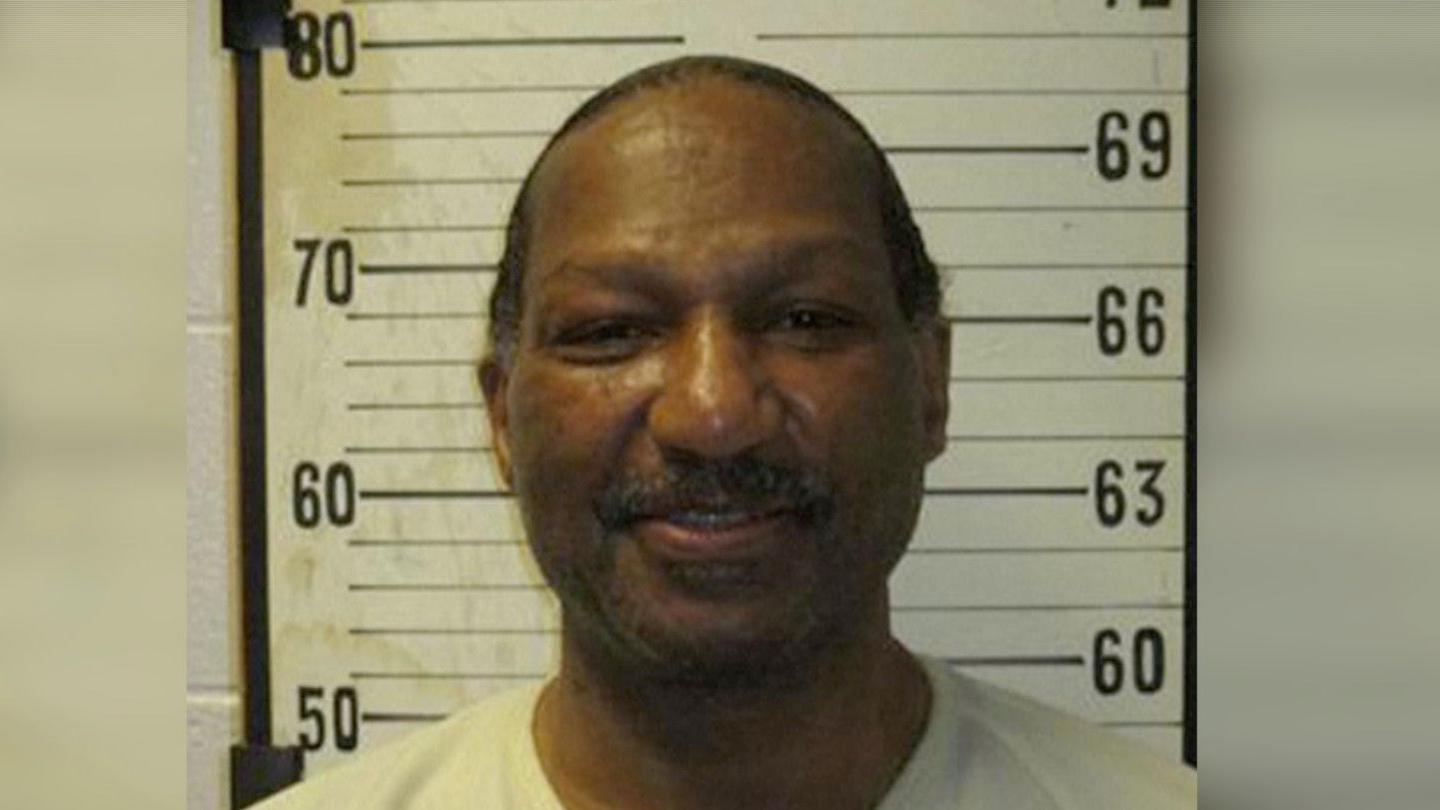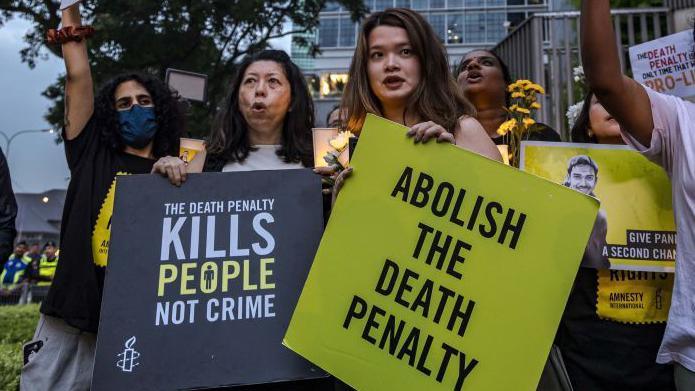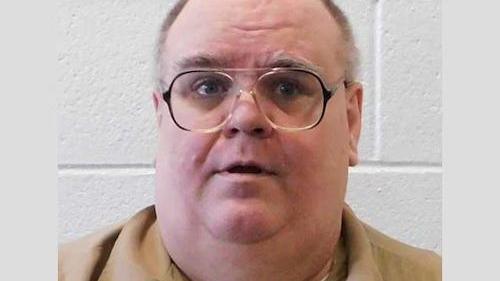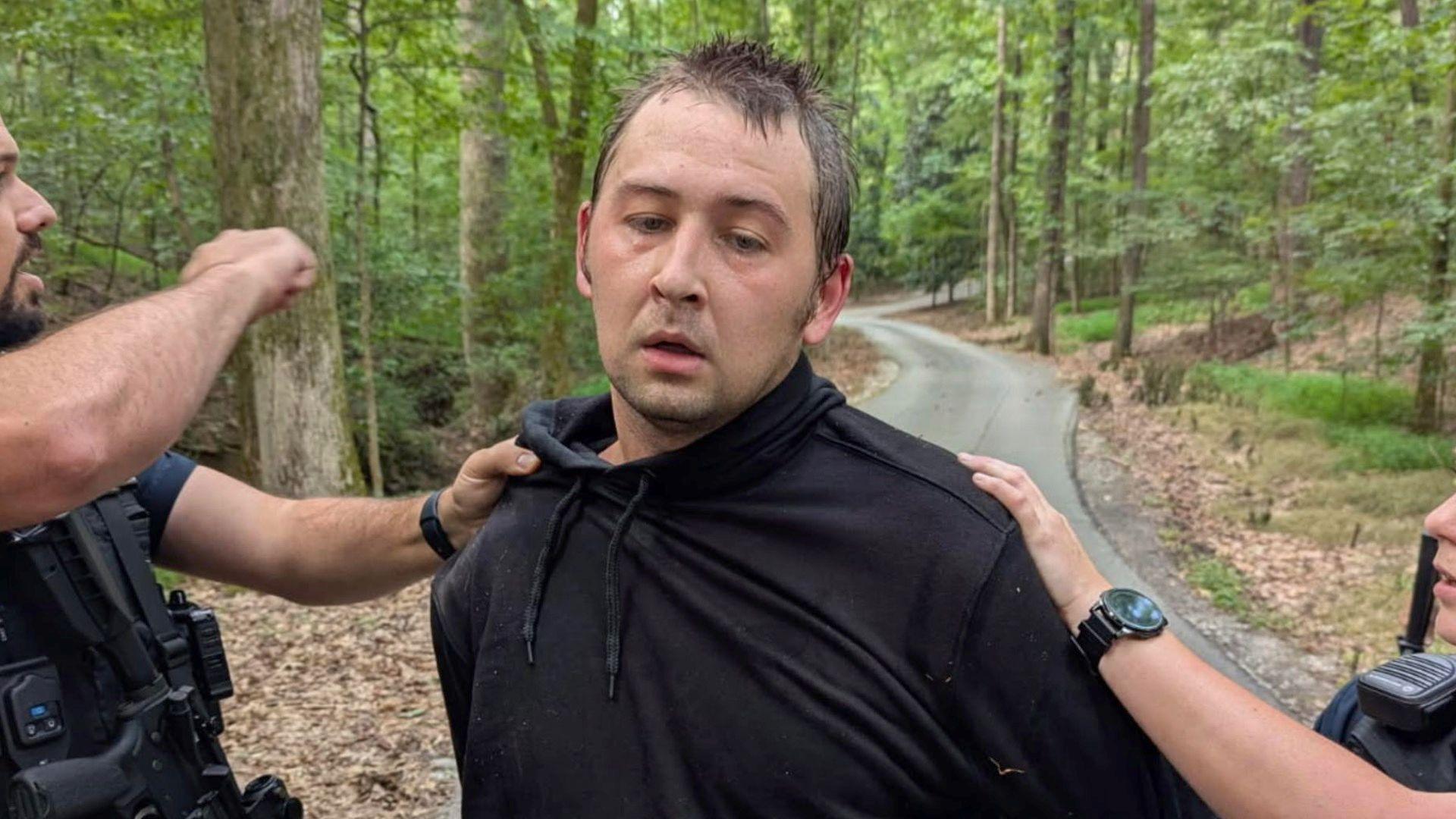Tennessee executes inmate despite concerns his heart device would prolong death
Watch: "This is barbaric" - Protesters weigh in on Byron Black's execution as victim's'family celebrates
- Published
The US state of Tennessee has executed an inmate despite concerns that a heart implant would shock him back to life, potentially causing extreme pain during the lethal injection.
Byron Black, 69, convicted of a triple homicide in 1989, was pronounced dead at 10:43 local time (16:43 BST) at the Riverbend Maximum Security Institution in Nashville, prison officials said.
The US constitution bars cruel punishment, and Black's lawyers had argued that executing him without deactivating the defibrillator would cause a prolonged and painful death.
Seven media witnesses present reported that Black appeared to groan in pain during the process. At one point, he was heard saying: "It's hurting so bad."

Black became the 28th inmate to be executed in the US this year
It is not yet clear what caused the apparent pain. Black's attorneys have said they will review the data kept by the device as part of the autopsy.
Black was convicted of fatally shooting his 29-year-old girlfriend Angela Clay and her two daughters, Latoya Clay, 9, and Lakeisha Clay, 6. He maintained his innocence, but his appeals were denied.
Angela Clay's sister, Linette Bell, issued a statement following the execution, saying the day brought closure to her family.
"His family is going through the same thing now we went through 37 years ago," she said. "I can't say I'm sorry because we never got an apology. He never apologized and he never admitted it, even on his dying bed, he took it to his grave with him. And he knows he did it."
Black became the 28th inmate to be executed in the US this year, with at least eight more executions scheduled. Capital punishment is legal in 27 states, as well as on the federal level.
He was in a wheelchair and was suffering from several ailments including dementia, brain damage, kidney failure, and congestive heart failure, CBS News, the BBC's US partner, reported citing his lawyers.
Black also had a cardioverter-defibrillator surgically implanted into his chest, which served as a pacemaker and emergency defibrillator.
"Today, the state of Tennessee killed a gentle, kind, fragile, intellectually disabled man in a violation of the laws of our country simply because they could," Black's lawyer Kelley Henry said.
In mid-July, a trial court judge agreed with Black's lawyers that officials would have to deactivate his defibrillator to avert any unnecessary pain or prolong the execution.
But Tennessee's supreme court intervened to say the trial court judge lacked the authority to make the ruling.
The state disputed the claim that the injection would cause his defibrillator to shock him, and argued that he would not feel them either way.
The US Supreme Court refused to intervene in the case.
Related topics
- Published8 April

- Published27 September 2024

- Published6 August
